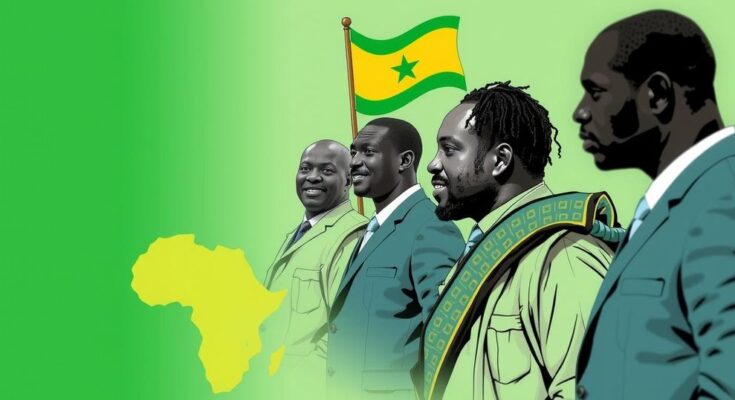Senegal’s snap legislative elections marked a significant democratic achievement, showcasing high voter participation and a peaceful transition of power. President Bassirou Diomaye Faye’s election reflects the resilience of Senegal’s democratic institutions, contrasting sharply with instability in other African nations. However, challenges remain, such as corruption and governance issues, emphasizing the ongoing need for transparency and civic engagement to fortify democracy.
Senegal’s recent snap legislative election on November 17, which followed President Bassirou Diomaye Faye’s unexpected call for early voting, epitomizes a significant triumph for democracy. Faye’s rise to power originated from a period of heightened political tension following former President Macky Sall’s controversial decision to delay a presidential election. The citizens of Senegal demonstrated their commitment to democratic principles through substantial voter turnout and peaceful transition, showcasing the nation’s dedication to constitutional governance. Notably, as results began to surface, the Pastef party was anticipated to secure a majority, with opposition members, including Sall, graciously conceding defeat and congratulating Faye. This electoral event highlights Senegal’s robust democratic foundations, especially in contrast to other African nations struggling with instability. However, challenges persist, including issues of corruption, weak governance, and potential threats to democratic integrity. President Faye’s pledge to govern with transparency signals potential reform, but he must navigate historical pitfalls of clientelism and nepotism that plagued his predecessors. Ultimately, Senegal’s experience underscores the importance of regular elections, inclusivity, and civic engagement to ensure democracy’s resilience in a complex political landscape.
The backdrop of Senegal’s elections is rooted in a tense political climate characterized by protests and calls for democratic reforms. Following the resignation of former President Macky Sall, heightened expectations surrounded President Bassirou Diomaye Faye, who vowed to uphold democratic ideals. These recent elections not only reflect the political will of the Senegalese people but also serve as a critical juncture in reinforcing the rule of law and constitutional mandates. The ease of transitions and public participation during this electoral cycle illustrate the evolving nature of Senegal’s democracy amidst challenges often faced by counterparts in the region.
In conclusion, the recent snap elections in Senegal serve as a powerful testament to the resilience of its democratic institutions. President Bassirou Diomaye Faye’s emergence as a key political figure points to a renewed commitment to transparency and good governance. To sustain this democratic momentum, it is imperative that Senegal addresses the underlying issues of governance and corruption that threaten democratic integrity. The electorate’s high engagement indicates a strong desire for continued democratic progress.
Original Source: theconversation.com




